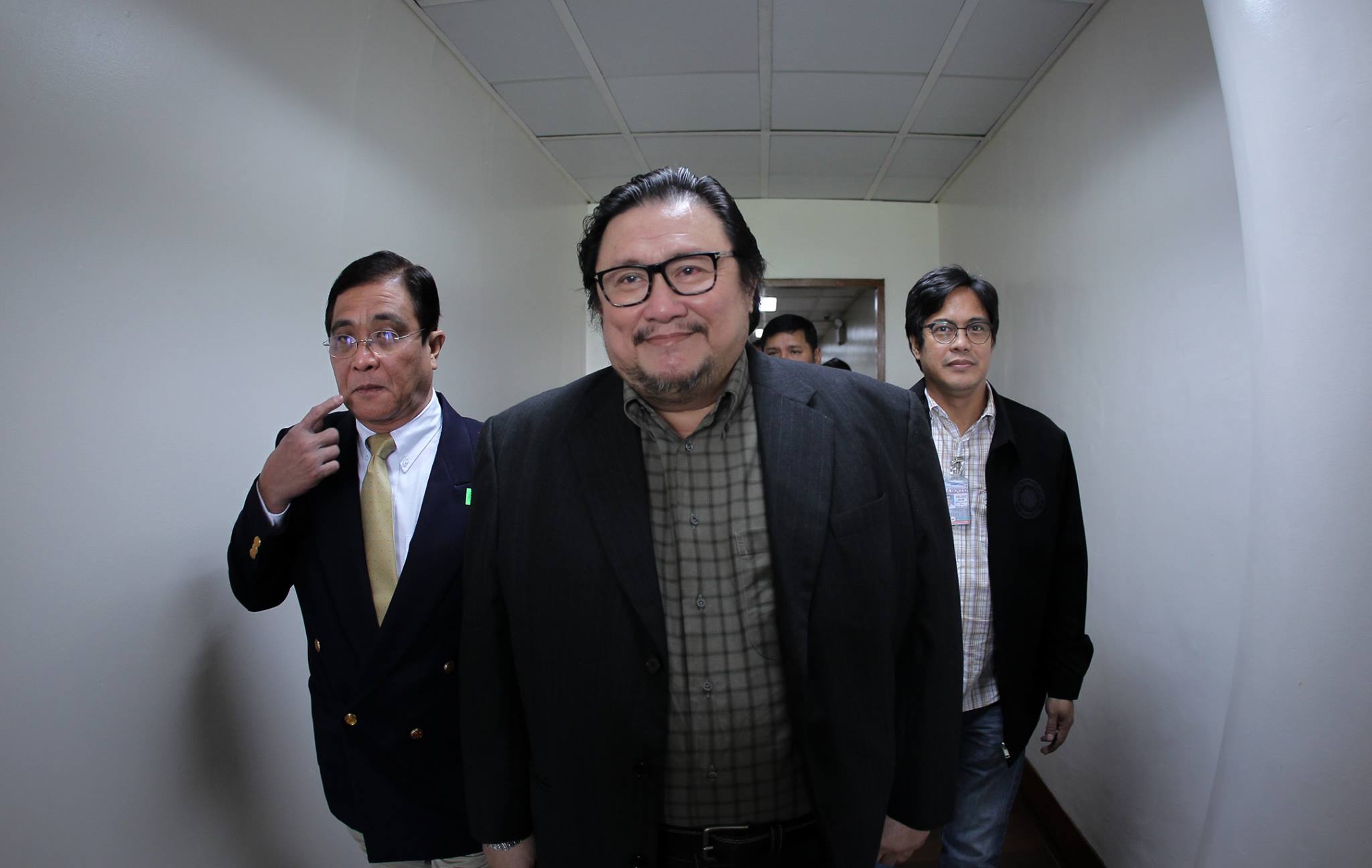News
DOJ sets next preliminary probe on anti-dummy raps vs Jack Lam on April 28

During last Thursday’s preliminary investigation, the VACC filed a five-page reply affidavit arguing to push the indictment of Lam for violation of anti-dummy law.(Photo: Senate of the Philippines/Facebook)
MANILA–The Department of Justice has set the next preliminary investigation on the complaint filed by Volunteers Against Crime and Corruption (VACC) against Chinese gaming tycoon Jack Lam on April 28.
The next hearing has been set 2 p.m. on Thursday.
During last Thursday’s preliminary investigation, the VACC filed a five-page reply affidavit arguing to push the indictment of Lam for violation of anti-dummy law.
“It is most respectfully prayed that this Honorable Office find probable cause against respondent for violation Section 2-A of Commonwealth Act No. 108, as amended by Presidential Decree No. 715 or the Anti-Dummy Law,” the reply-affidavit signed by Arsenio Evangelista reads.
Evangelista insisted that the counsel for Lam, Charlie T. Ang, failed to provide documents to support his claim.
“Stated otherwise, Mr. Ang’s defenses merely constitute plain denials without substantiation,” the VACC said.
“There are no proof that the BVI companies are registered as doing business in the Philippines nor did Mr. Ang attempt to prove the same,” the VACC complaint read.
Last December, the VACC, through its president Dante Jimenez, along with their legal counsel Atty. Ferdinand Topacio, specifically charged Lam and four others for violation of the Anti-Dummy Law under Section 2-A of Commonwealth Act No. 108, as amended by Presidential Decree No. 715 prohibiting more than 60 percent ownership of foreign investors in real estate’s property in the country like the Fort Ilocandia in Ilocos Norte.
Also named as respondents in the eight-page complaint were Rosanno Nisce, former president of Fort Ilocandia Holdings; Siu Wah Chung, a British national and former chairman of the Board; Edgar Lim, former treasurer and director of Fort Ilocandia Holdings; and Jose Roberto Mumuric, former secretary and director of Fort Ilocandia Holdings.
Topacio said the company used “layering” that Filipino ownership falls to 60 percent, contrary to the truth that Fort Ilocandia’s majority percentage is owned by Lam.
“Through corporate layering, Fort Ilocandia through its dummy companies, and its Directors and Officers are able to exercise, enjoy, use and exploit real property in the Philippines, contrary to law,” read the VACC complaint.
The VACC also sought to “declare the Asset Purchase Agreement entered into by Fort Ilocandia with Grand Ilocandia and WPI (Waterfront Philippines Inc.) to be null and void for being contrary to law.”
Grand Ilocandia is the original operator and owner of Fort Ilocandia Resort and Hotel when it participated in the deal that took place on September 9, 2000.
Through the asset purchase agreement, Fort Ilocandia Holdings was able to acquire from Grand Ilocandia properties and assets including the Fort Ilocandia Resort and Hotel.
“There is a violation of the Anti-Dummy Law, when a qualified Filipino citizen or national allows a foreign citizen or non-qualified person to enjoy rights, privileges, property or business, the exercise of which is limited to Filipino citizens,” the complainant explained.
“For liability to attach, it must first be established that there is a law limiting or reserving the enjoyment or exercise of a right, franchise, or business to citizens of the Philippines or to corporations or associations at least per centum (60 percent) of the capital of which by such citizens,” it added.
Citing records from the Securities and Exchange Commission (SEC), the VACC noted that the stocks of Fort Ilocandia Holdings is shared among Ilocandia Holdings Corporation which holds 59 percent of the Filipino shares; Intellectual Group Ltd. (IGL) which owns 39 percent of the foreign shares; and less than one percent to Lam.
However, the VACC learned that Lam seems to also have a hold on IGL when it signed a May 6, 2000 memorandum on behalf of IGL over a PHP150 million loan given to WPI.
The VACC also noted that Ilocandia Holdings has 39 percent foreign ownership through Corpsmart Ltd and 59 percent Filipino ownership through Sevenseas Holdings.
“The corporate structure of the above corporations, despite being seemingly compliant with the Philippine laws, warrants a deeper investigation as as to their real foreign equities and those of their subsidiaries and/or affiliates,” the complainant pointed out.
Lam is involved in a bribery scandal with four high-ranking officials of Bureau of Immigration officials, who reportedly received PHP50 million from him in exchange for the release of the undocumented Chinese workers arrested in Lam’s casino facility, the Fontana Leisure Resort in Clark Field, Pampanga last November 24.
Of the 1,316 arrested Chinese nationals, a total of 592 were granted bail by the BI board of commissioners. Only 43 of them were charged in DOJ for violation of Presidential Decree 1602 (Illegal Gambling) and Republic Act 10175 (Cybercrime Prevention Act of 2012).
It will be recalled that President Rodrigo Duterte ordered the arrest of Lam for economic sabotage in relation to the arrest of 1,316 Chinese nationals illegally working in his online gaming operations at the Fontana resort.
Lam has been blacklisted by the government over his alleged illegal online casino in Pampanga.





















